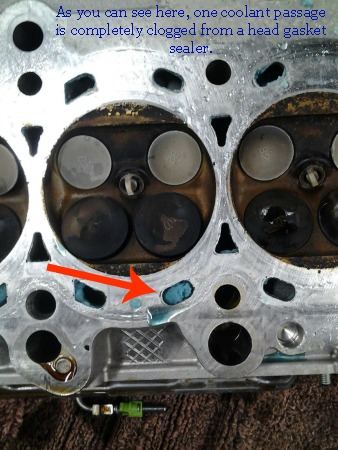
When it’s cold outside and you notice white smoke at startup, then you probably have nothing to worry about. When the warm or hot exhaust gases meet cold outside air, condensation and steam is a result. After a short amount of driving, the white smoke should lessen. If smoke is being release then this is indicative of a problem.
HOWTO looks at all the possible reasons why white smoke is coming from your exhaust pipe. For the past couple of Sundays when I leave Wilmington to head back to New Bern, smoke briefly comes out of the exhaust pipe but it isn’t thick white cloud. I then realize, since it’s summer time and I’m near the water, hence a marina, and my car’s front is slanted up it’s the only time the smoke comes out of the exhaust pipe, briefly. Here are of the most common causes of a car blowing white smoke from the exhaust pipe. Condensation Burn Off.
If you notice white smoke coming from your muffler, don’t automatically assume the worst. It is never a good signal and can indicate several problems. But if you spot it early, know what to do and act on it, these problems can be fixed. The truth of the matter is that there are a few things that can cause white smoke , but a blown head gasket is.

Thick , black smoke suggests that the engine is being flooded with gasoline. The black smoke may show there is a return fuel line which is obstructed. Fuel injectors and sensors might also be damaged. Black exhaust smoke means the engine is burning too much fuel. The first think you should check is your air-filter and other intake components like.
Thick white smoke pouring from the exhaust is usually due to a crack in the cylinder hea engine block or head gasket. This is caused by constant temperature fluctuations and a consistently overheating engine due to low coolant levels. But if the smoke is thick and happens often, it is time to take your car to a reputed auto repair shop.
This is probably the result of normal condensation buildup inside the exhaust system. This kind of smoke disappears quickly. However, thicker smoke is a big problem, and can be caused the engine burning coolant.
The Causes Of White Smoke From Exhaust Thin, wispy vapours or white smoke can sometimes be a build-up of condensation in the exhaust system. If the exhaust smoke is blue or gray: Thick blue or gray smoke is an indication of the vehicle burning oil, which means that oil is somehow leaking into your engine’s combustion chamber. Burning oil like this can cause a wide range of issues from reduced fuel economy to less-than-stellar acceleration. You may commonly see white smoke coming from the exhaust on cooler days upon starting.
This is likely due to steam created due to the engine burning off the condensation. In very cold temperatures, the heated exhaust can freeze into minute fuel droplets when exiting the exhaust and produce a more prolonged emission of white smoke for a very short period of driving time. A cracked head may allow coolant to leak into one or more cylinders or into the combustion chamber of the engine.
If you’re certain it’s smoke then you likely have weak or worn valve guides. The oil leaks past them all the time, but when you park the oil falls past them and sits in the cylinder until you fire it up again. The oil burns away, white (blue) smoke, and looks clean until next time.
No comments:
Post a Comment
Note: Only a member of this blog may post a comment.